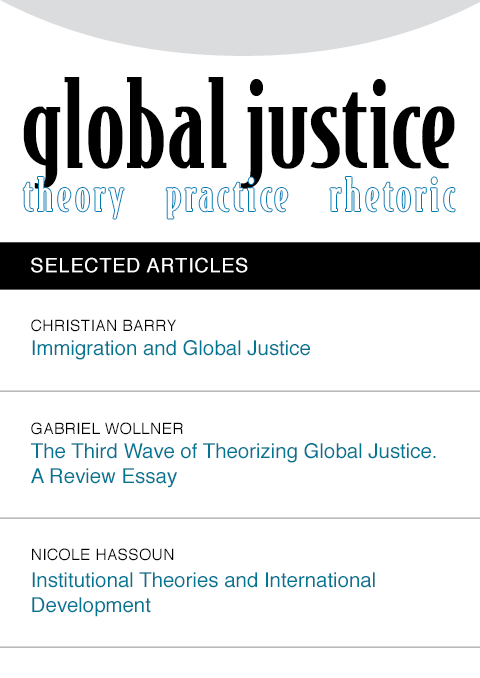Chris Armstrong on Global Equality and Special Claims to Resources
DOI:
https://doi.org/10.21248/gjn.13.01.184Abstract
In ‘Justice and Natural Resources,’ Chris Armstrong offers a rich and sophisticated egalitarian theory of resource justice, according to which the benefits and burdens flowing from natural (and non-natural) resources are ideally distributed with a view to equalize people’s access to wellbeing, unless there are compelling reasons that justify departures from that egalitarian default. Armstrong discusses two such reasons: special claims from ‘improvement’ and ‘attachment.’ In this paper, I critically assess the account he gives of these potential constraints on global equality. I argue that his recognition of them has implications that Armstrong does not anticipate, and which challenge some important theses in his book. First, special claims from improvement will justify larger departures from the egalitarian default than Armstrong believes. Second, a consistent application of Armstrong’s life plan-foundation for special claims from attachment implies that nation-states may move closer to justify ‘permanent sovereignty’ over the resources within their territories than what his analysis suggests.
References
Armstrong, Chris, Justice and Natural Resources: An Egalitarian Theory. (Oxford: Oxford University Press, 2017).
Raz, Joseph, The Morality of Freedom (Oxford: Oxford University Press, 1986).
Waldron, Jeremy, The Right to Private Property (Oxford: Clarendon Press, 1988).
Waldron, Jeremy, The Harm in Hate Speech (Cambridge, MA: Harvard University Press, 2012).

 Global Justice: Theory Practice Rhetoric (TPR) is a peer-reviewed, open-access e-journal which publishes original research in international political theory, with special emphasis on global justice. We are particularly interested in bridging the gap between political theory, empirical research, and the study of political practices and communication.
Global Justice: Theory Practice Rhetoric (TPR) is a peer-reviewed, open-access e-journal which publishes original research in international political theory, with special emphasis on global justice. We are particularly interested in bridging the gap between political theory, empirical research, and the study of political practices and communication. 


